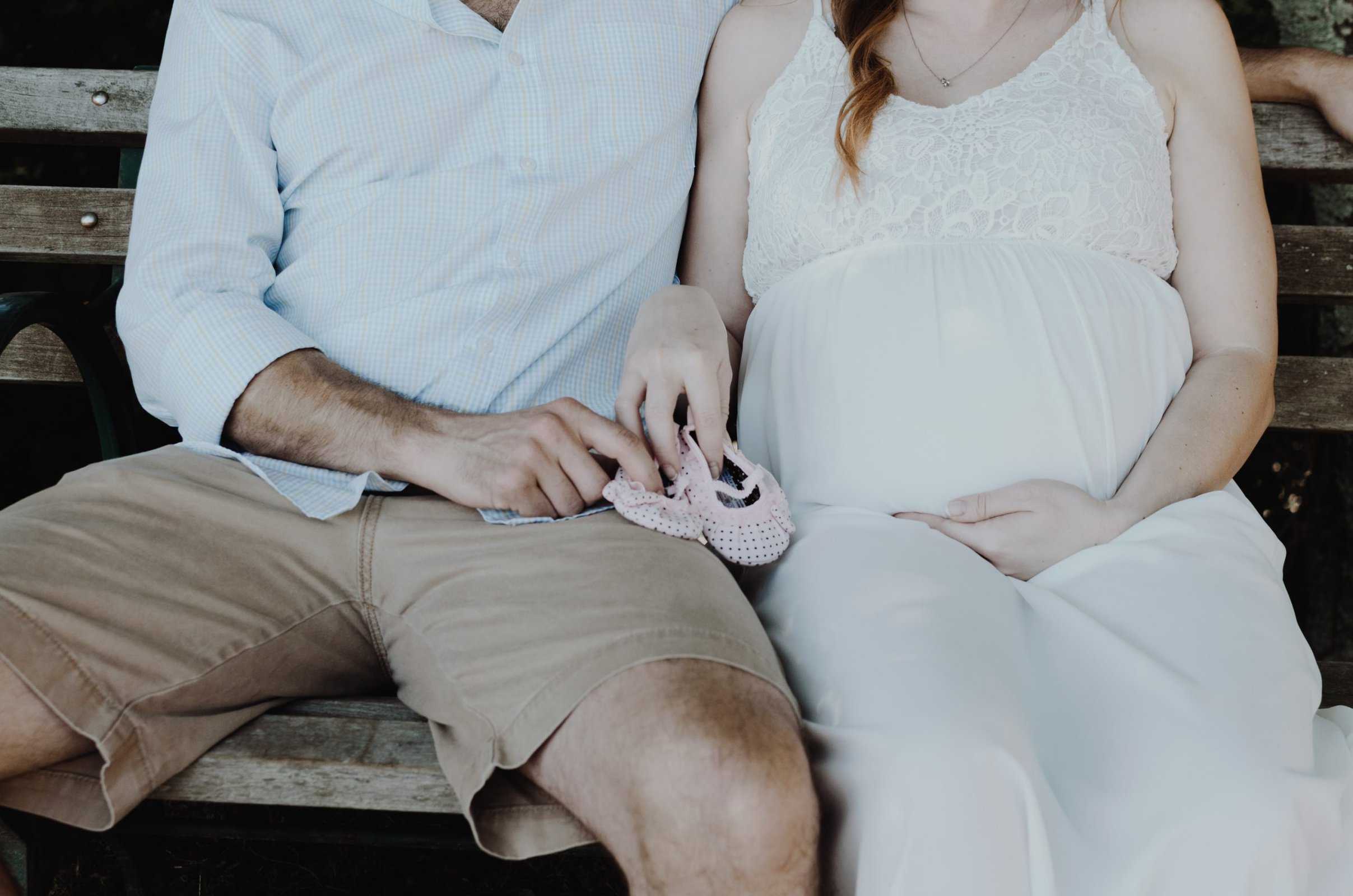By Andri Johnston
ALSO READ: Everything you need to know about giving birth in England – Part 1
You still can’t believe it: The blue line on the pregnancy test showed positive and changed your whole world overnight. You are so excited and there is so much to plan and remember. One thing that all foreigners are unsure about is how exactly the birthing process works in a foreign country. And let me tell you, giving birth in England is very different from what you and your family are used to in South Africa. So here is everything you need to know.
As I write here, our little girl is three months old. I struggled to understand the birth process with the help of the British National Health Service (NHS). Everything was strange and frustrated me. And explaining to my family in South Africa how a system with midwives works was even more difficult. That’s why I want to make a how-to list for future South African mums who have to give birth in England. Maybe it can make the process a little less stressful for you.
What support can you expect from the NHS during your pregnancy and after the birth?
If your pregnancy is without complications, your pregnancy, the birth and the postnatal service will cost you nothing. The NHS covers all costs. You do, however, contribute to the NHS with your taxes. This does not mean that the service you receive is exactly the same as South Africa’s private medical services, but in general, it is good. You can also expect the following:
- Two scans – the first one at around 12 weeks and another at 20 weeks. The first scan you can book during your 10-week appointment and the 20-week scan during your 12-week appointment. If you would like more scans, you will need to have them done privately and pay for them.
- All blood, glucose and other tests are done by the NHS. They test for a host of things, from Down’s syndrome to whether you and your baby’s blood are compatible. The blood tests can be done by your midwife or at the hospital; I chose to have it done at the hospital. The many tests are very reassuring, because you know they will warn you if something is wrong with your baby. The NHS also supports parents very well if a problem is indeed detected.
Tip: The midwife may suggest that you have a glucose test done because you come from South Africa. Unless you have diabetes in your family or your BMI is high, you have every right to refuse to have that test done.
- Monthly visits to or from your midwife. The number of visits to or from your midwife depends on if it is your first baby. If it is, you will have more visits than with subsequent babies. Your midwife can visit you at home (you can specifically ask for this) or you can visit her at a community centre.
- 24-hour access to triage. This is an amazing service and has reassured us time and time again. You can call or visit your hospital’s triage service 24/7 to be monitored or examined. They are very adamant that you should go to the hospital to be monitored if you feel your baby moving any less than usual. We went there a few times and they monitored and examined me very professionally every time. You won’t see the same midwives and doctors every time, but if you go a few times, you get to know a bunch of faces and that helps a lot on the day of the birth.
Tip: I would really suggest that you visit the triage unit at least once before your baby is born to get to know the hospital and some of the midwives and doctors. This will make you feel much more at ease when the big day arrives.
- Postnatal care for you and baby. This is also covered by the NHS, regardless of how long you have to stay in hospital or what tests have to be done. Even though you may want to go home as soon as possible (I really wanted to but had to spend four days in the hospital), it’s comforting to know that they will do everything possible to keep or make you and your baby healthy while you are in hospital. Your baby’s hearing, sight and hips are also properly tested before you are discharged.
- Postnatal vaccinations for your baby. They will ask you if you want your baby to have a vitamin K injection immediately after birth. It helps with blood clotting and almost all babies in England get it. You can do your own research and decide if you want to have it administered. The doctors may also suggest that your baby get a tuberculosis vaccination because you come from South Africa. This is again your choice and not at all mandatory just because you are South African.
- Postnatal blood tests, tongue tie service and breastfeeding support. These services are free, but their quality and the speed at which you and your baby receive them depends on your NHS association and hospital and on the availability of staff.
- All baby vaccinations at your GP. Your baby is vaccinated at 8, 12 and 16 weeks. This, and all future vaccinations, are covered by the NHS. Once you are discharged, your midwife will let your GP know and they will then book your first vaccination appointment for around 8 weeks after birth; they will let you know by mail when the appointment is. Your baby is examined and weighed at each visit. It helps that they make the appointments for you, especially in the first few weeks after the birth, but it means you can’t choose a date that suits you best.
- The first month’s vitamins for you and your baby. Your baby usually gets vitamin D drops and you get a multivitamin. Unfortunately, you only get one bottle of each but it’s a good start.
Private services that you may need but for which you will have to pay
- Extra scans. If you want more than the two scans at 12 and 20 weeks, you will need to have them done privately. You can have it done at a private clinic or you can go to the hospital, but there the waiting list is usually very long.
- Tongue tie service and support with breastfeeding. Although these services are available through the NHS, the waiting times are sometimes very long and the service is not always of a good quality, so many people use private services.
- Physiotherapy during pregnancy. The NHS only offers physiotherapy services after 20 weeks. If you need it during your first trimester (unfortunately I had terrible hip and back pain) you will need to use private services.
- Physiotherapy or Mummy MOT after birth: Physiotherapy or Mummy MOT after birth: After your midwife has discharged you, there is almost no support or examinations for you as a mother. Because midwives are not doctors, and because you don’t have a gynaecologist, your family doctor must do all medical examinations, including your C-section wound. Unfortunately, the GPs are so busy that such examinations are rarely carried out. The only postpartum support you get is usually a phone call from the doctor to ask how you feel. This can make you feel unsure whether you are physically ready to start exercising again. For example, I wanted to start running again. Certain physiotherapists provide a private service called Mummy MOT. (“MOT” is the term used for a car’s annual roadworthiness test.) It’s not cheap, but if you’re active, in pain, or had complications during birth, I’d recommend it. They examine your pelvis, pelvic bone and abdominal muscles and also do an internal examination to ensure there are no internal problems.
The last admin to remember
Something that one can easily forget during the confusing time of pregnancy and birth is that your baby must be registered both in the United Kingdom and in South Africa. It is important that you register your baby at the South African embassy in London within the first 30 days after birth and apply for a passport for him or her at the same time. For the registration, you must make an appointment with the embassy by e-mail. Both parents must be present during the registration. It can take up to six months to get the South African birth certificate and passport, but we received our baby’s within three months. The biggest challenge is taking a photo of your month-old baby with eyes open for the passport. I would suggest that you take your baby to a photo shop where they are used to taking photos for child and baby passports.
Final thoughts
It can be difficult to explain the differences between pregnancy care and birth processes to family and friends in South Africa. Personally, it made me feel very lonely in the beginning. But one thing about pregnancy and birth in England that makes me feel very positive is the many support networks (although it sometimes takes a while to be serviced by them). Remember, you are not alone. The NHS takes the health of pregnant women and babies very seriously. You are in good hands.
My best advice for South Africans planning to give birth in England is to do your own research and not just blindly accept everything the midwives tell you. You have the right to say no or ask for different or better service at any time. Although you don’t technically pay for the NHS, it is funded by your taxes, so you have every right to a service that makes you feel comfortable, safe and healthy.
Share on
Latest articles




















